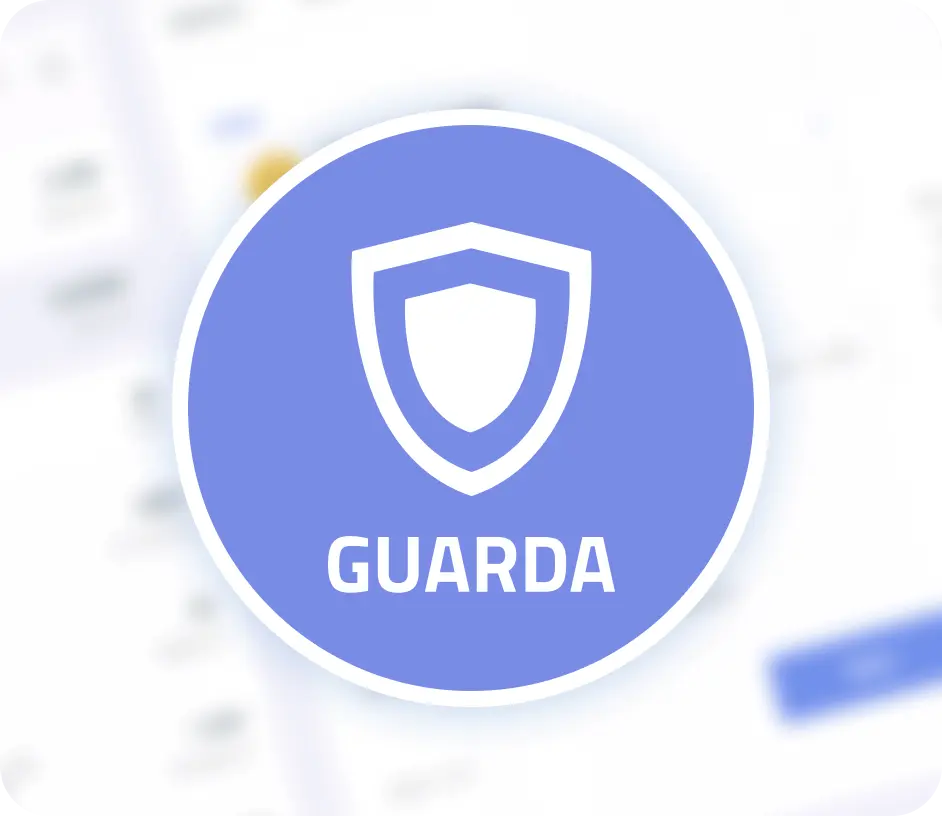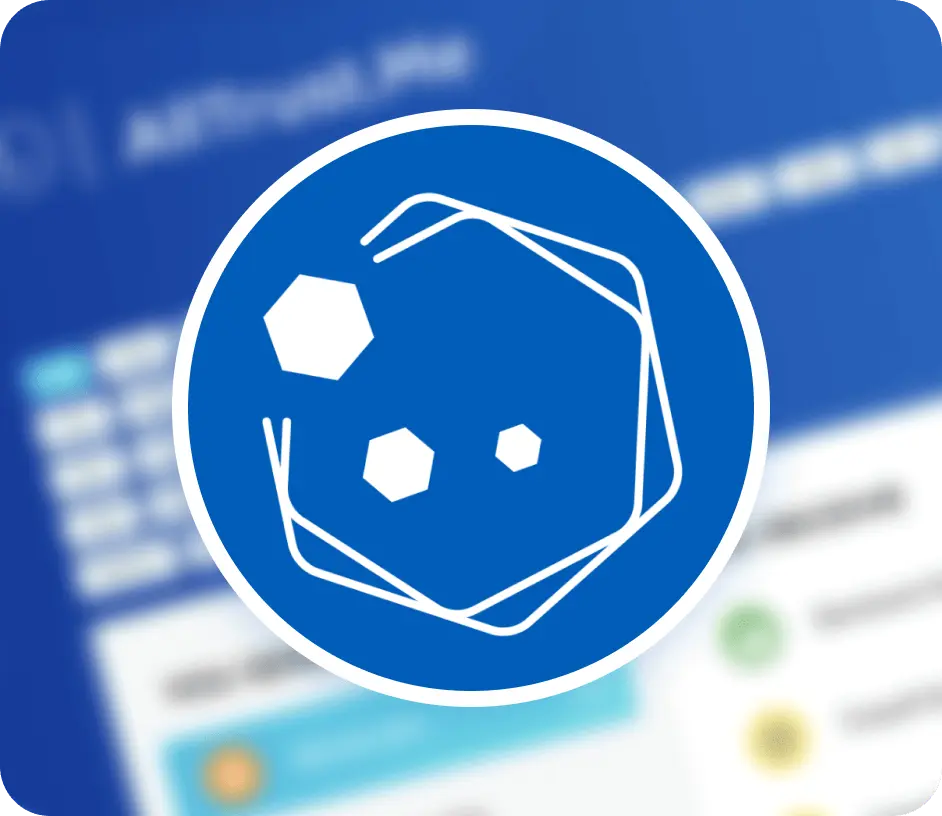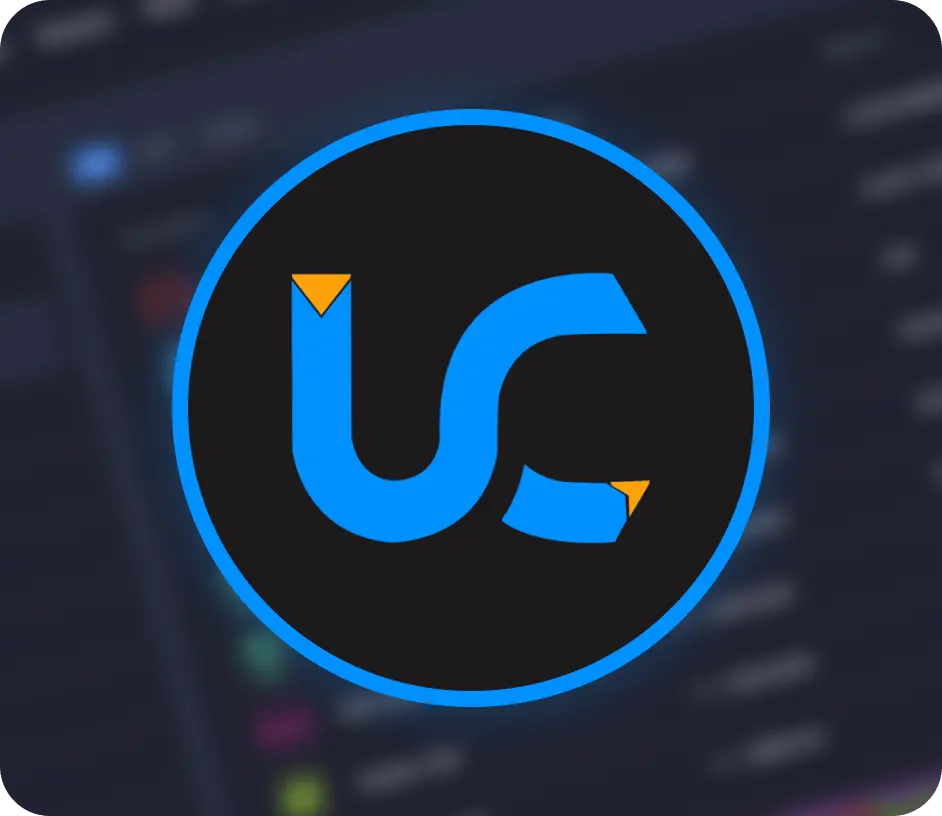Checking cryptocurrency wallets for dirty money
By checking your wallets, you protect yourself from scammers and stolen coins.
Check your wallet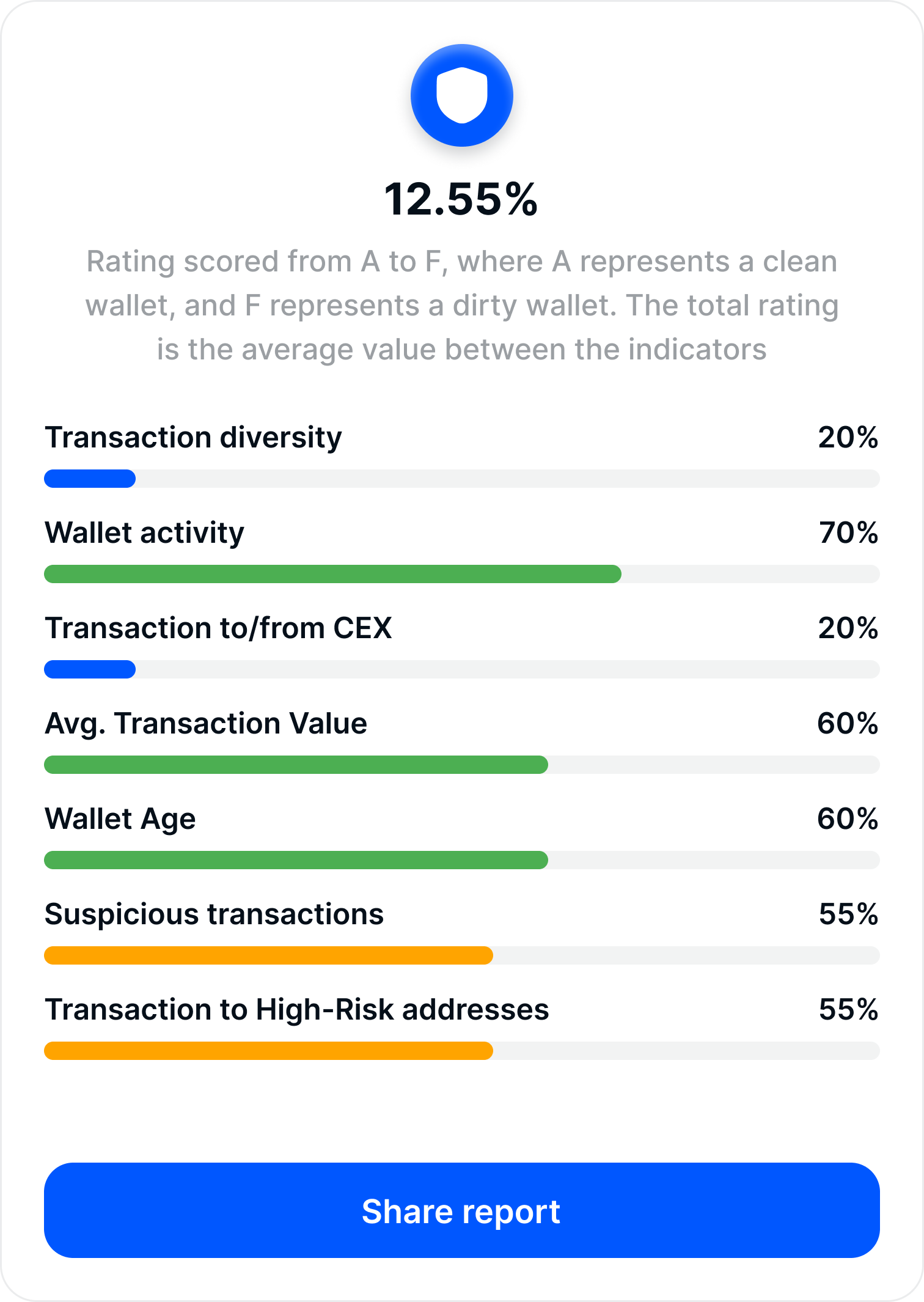
This is to ensure that you don't have problems with the inspection authorities and to keep you safe from scammers.
It may not happen, but your wallet will be flagged.
We recommend doing checks and being confident in your assets
In the three years we have been in business, we have been able to save clients $5 359 800 in losses
Wallets contain stolen or dirty money
All of the wallets we checked are suspicious
Spending a couple dollars on a check can save you from losing several thousand dollars.
What else?
Checking the sanctions listsWe will show whether the address is on the sanctions lists. Any interaction with such addresses may result in fines, blocking or license revocation.
We help you get back the money that was stolen by fraudsters from your wallet. A specialist will analyze the situation and offer a solution.
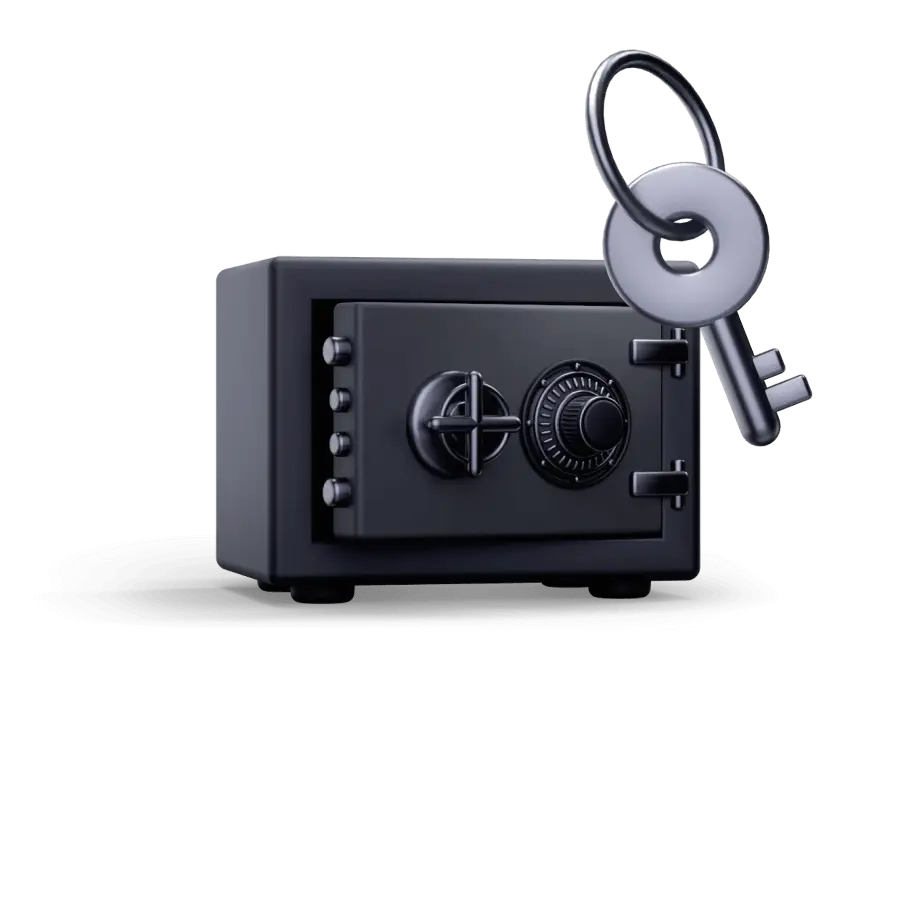
In three years, the AMLBot service has been used
500+ companies and exchanges
Our team
AML officers help resolve difficult situations and keep you safe from fines and blockages. Professional specialists will represent your interests up to the court, if necessary.




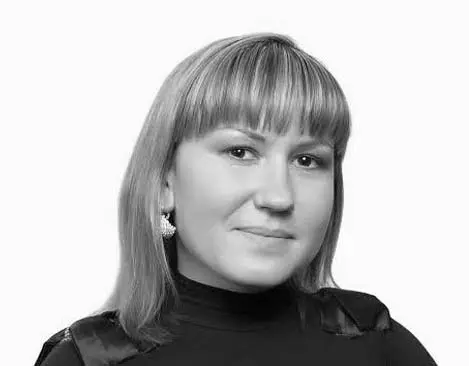



Here's what our customers are saying
Explore our service with people we've already helped.
We are trusted
Why AML Guard
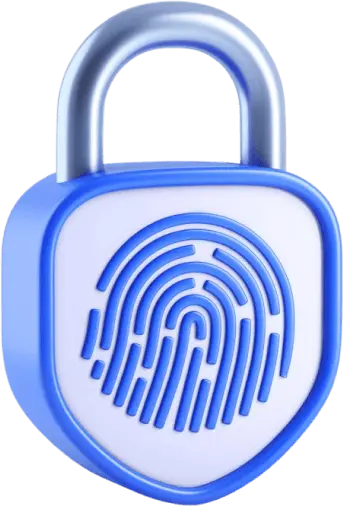
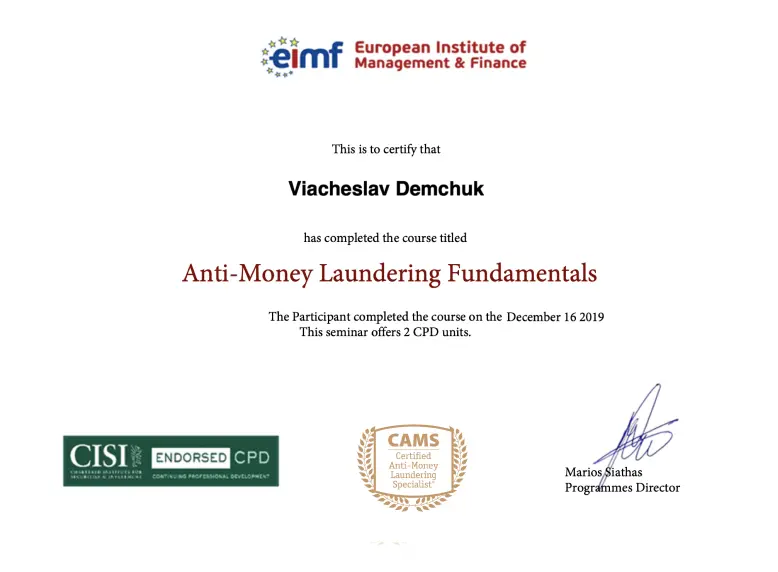
We are living people, so may not respond as promptly at night as during the day ✌️

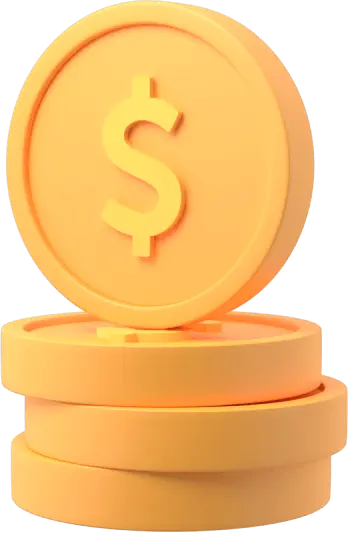
Popular questions
Write to us in Telegram. We answer quickly and to the point, because we have everything covered 👌
We're on Telegram
We'll respond within 30 seconds
What does the address verification show?
Total risk (in percent) - the probability that the address is associated with illegal activities. Sources of risk - known types of services with which the address interacted and the percentage of funds accepted from / given to these services, for which the total risk is calculated.
What do the parameters in the validation results mean?
AML Guard checks the specified wallet address for links to known blockchain services. AML Guard conditionally organizes such services into groups with different levels of risk of illegal activity. The result of the check shows the connections of the address being checked with these groups in percentage ratio. Based on all connections, an average risk assessment is given, which helps the user make further decisions on assets.
How should risk assessment be understood?
Each client determines for himself/herself what
percentage of risk is acceptable for him/her. Conventionally, risk values can be
divided as follows:
- 0-25% is a net asset;
- 25-75% is the average
risk level;
- 75%+ - such an asset cannot be recommended.
Also worth
noting are the red sources of risk in the detailed analysis described on the page.
How fast is the balance replenished?
After the transaction is confirmed, the balance is replenished:- up to 10 minutes if the payment was made within 24 hours after the invoice was issued,- up to 25 minutes if the payment was made after 24 hours after the invoice was issued. In general, BTC, ETH, USDT and fiat are processed faster than other coins.
What does it mean to estimate risk as a percentage?
AML Guard finds the connections of a verified address to different users on the blockchain, each with a different conditional risk. The overall risk score is the average of all the components found. For example, if out of 2 BTC on the verified wallet, 1 BTC came from mining (0% risk) and another 1 BTC from the Darknet (100% risk), the risk score would be 50%.
How does AML Guard help protect against blocking?
By checking the wallets of counterparties before a transaction, you can reject their assets if the risk assessment is high. Also, before transferring funds to other services, you can check your wallet address and save the result (make a screenshot). If the check shows that your assets had no connection with illegal activities and the service blocked you, you can provide the saved result to confirm the purity of your assets.
The risk is more than 50%, but I'm sure the address is reliable. What should I do?
The verification results are based on international databases that are constantly updated. Therefore, an address that had 0% risk yesterday could receive or give the asset to a risky counterparty today. In this case, the risk assessment will change. If you want to be sure of the outcome and determine what the cause of the high risk is, we can perform a detailed review for you.
What is the difference between address verification and TxID transaction?
Address (wallet) verification is an analysis of all addresses ever associated with it, from which funds were received and to which funds were sent. Check transaction (you need to specify TxID) and then you select:- Received funds (Recipient) and the address where the funds were received (Deposit). This will check the relationships of the addresses from which the funds were received. If you look at the transaction in the blockchain explorer, these are the addresses on the left and anyone they have interacted with prior to this transaction.- Gave the funds (Sender) and the address to which the funds were sent (Withdrawal). This checks the wallet (in blockchain explorer it is on the right side) that received the funds and all of their communications prior to this transaction. Thus, the TxID check assesses the risks to the recipient if you choose to accept the funds, and the risks to the sender if you choose to send them.
What happens if I don't have time to use all of my checks for the month?
They stay in your account and you can use them at any time.
How often are inspections recommended?
The answer to this question depends on your unique risk model. A general recommendation is to perform an AML check every time you interact with an unknown wallet or smart contract.
Which cryptocurrencies does AML Guard analyze?
BTC, ETH, LTC, BCH, Tether OMNI, XRP, and over 1500+ ERC-20 tokens (including Tether, BNB, QC, NEXO, TUSD, and 60+ DeFi tokens) can be verified at AML Guard.
What if I need more inspections?
You can purchase checks as needed. The number of checks is always displayed in your user information.
